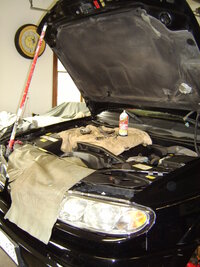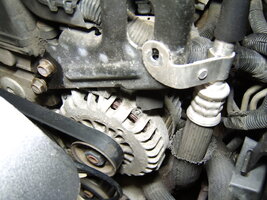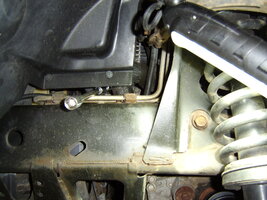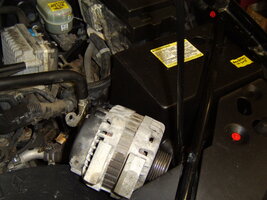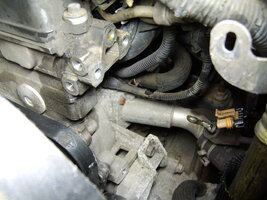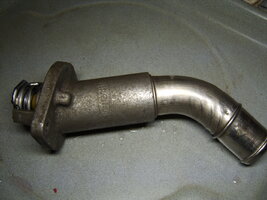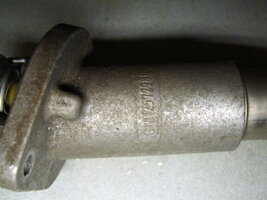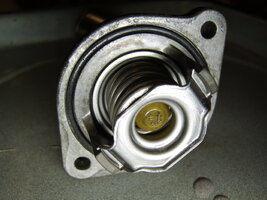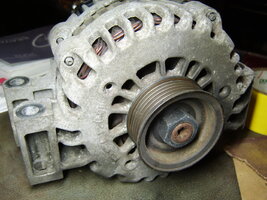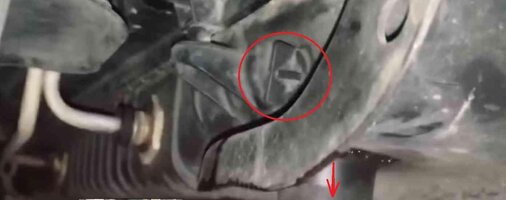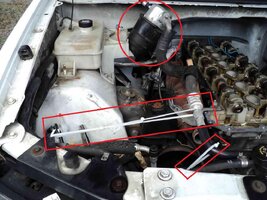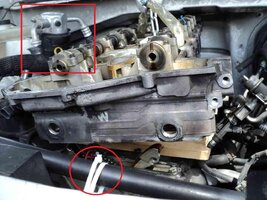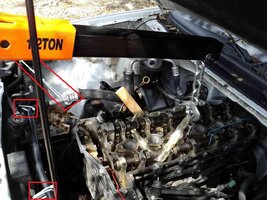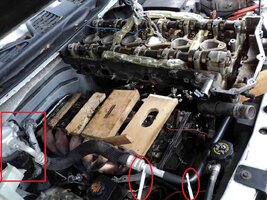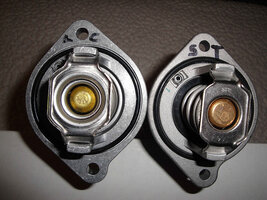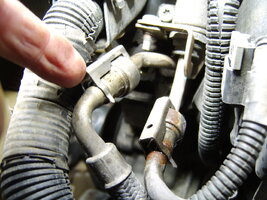Greetings to all. I am posting a recent event and hope to get some opinions from the experts here:
I have owned a 2002 Olds Bravada for many years, and she now has almost 190,000 on the clock. I hooked up a trailer and drove 2.5 hours to pick up an antique Porsche 944 (poor man's Poor-shaaa), and after driving only 15 miles through some long mountain upgrades, the engine just "pooped-out", and I had to pull to the side. Engine seemed to loose all power, and almost seemed like it stalled out. When I pulled over and put her into Park, the engine was still idling, but kinda erratic (RPMs would bounce down to around 400, then surge up over 1000). I raised the hood and checked the fluids and looked underneath for some sign of leaks.....nothing wrong, all dry, and all fluids were ok (although hard to verify on a hot engine on a slight up-grade).
I started her up again, and started attacking the long grade again, with RPMs averageing 3000, but I was unable to get above 45mph before she "died" again. I had to pull over and deal with getting the entire rig towed the 2.5 hours home (not cheap).
At the time I was thinking that maybe one or two coil packs may have suddenly gone bad under the increased rpms and load (about 4500 lbs of trailer and car). Only one coil pack was replaced about 30,000 miles before, so the other 5 were long overdue. My other thought was that maybe the "catastrophic converter" was clogged and not allowing the engine to exhale the gases, and it was building up back pressure and killing the engine's power at higher RPMs. (Air filter was just changed last month.....so, not clogged with rats nest).
I put a Code Reader on her the next day, and did not get any codes saying I had misfires and no codes saying bad converter/O2 sensors. However, the "Service Engine Soon" light had been on, but that prior code was just a P0128 code (Coolant was a bit lower than normal). I had been ignoring this Coolant issue since I was putting-off replacing the thermostat, and did not think a 5-10 degree cooler temp would be an issue.
So, I just replaced all 6 of the Coil Packs and Plugs, and the engine starts up and idles the same as before. I tested the 6 old Coil Packs with a voltmeter, and they tested the same as the new coils. When I try revving the engine while in Park, the RPMs do not want to go over 3000, and its a somewhat slow rpm increase......seems to be slower than normal to rev up to 3000, as if the catastrophic converter is clogged. Using a rag near the tailpipe, the gases seem to be coming out at a good clip when the engine is gunned....but it hard to be sure.
When inspecting the Cat, it has a factory weld to the 3 foot pipe that goes up to the manifold, and a factory weld to the rear 2 foot pipe that goes to the muffler......so, I cant just remove it to inspect the guts. I believe the Cat is original, so is 180,000 miles exceeding the life of these expensive critters?
Any other suggestions as to what might be the problem with this old in-line six?
Thanks for any ideas/suggestions.
I also forgot to mention the Fuel Filter. I will admit that the fuel filter has not been replaced in probably 100,000 miles, and this is another "potential" causes for the problem.....maybe the engine just was not getting the proper volume of fuel at higher rpms? I will be replacing the fuel filter as soon as it arrives.
I have owned a 2002 Olds Bravada for many years, and she now has almost 190,000 on the clock. I hooked up a trailer and drove 2.5 hours to pick up an antique Porsche 944 (poor man's Poor-shaaa), and after driving only 15 miles through some long mountain upgrades, the engine just "pooped-out", and I had to pull to the side. Engine seemed to loose all power, and almost seemed like it stalled out. When I pulled over and put her into Park, the engine was still idling, but kinda erratic (RPMs would bounce down to around 400, then surge up over 1000). I raised the hood and checked the fluids and looked underneath for some sign of leaks.....nothing wrong, all dry, and all fluids were ok (although hard to verify on a hot engine on a slight up-grade).
I started her up again, and started attacking the long grade again, with RPMs averageing 3000, but I was unable to get above 45mph before she "died" again. I had to pull over and deal with getting the entire rig towed the 2.5 hours home (not cheap).
At the time I was thinking that maybe one or two coil packs may have suddenly gone bad under the increased rpms and load (about 4500 lbs of trailer and car). Only one coil pack was replaced about 30,000 miles before, so the other 5 were long overdue. My other thought was that maybe the "catastrophic converter" was clogged and not allowing the engine to exhale the gases, and it was building up back pressure and killing the engine's power at higher RPMs. (Air filter was just changed last month.....so, not clogged with rats nest).
I put a Code Reader on her the next day, and did not get any codes saying I had misfires and no codes saying bad converter/O2 sensors. However, the "Service Engine Soon" light had been on, but that prior code was just a P0128 code (Coolant was a bit lower than normal). I had been ignoring this Coolant issue since I was putting-off replacing the thermostat, and did not think a 5-10 degree cooler temp would be an issue.
So, I just replaced all 6 of the Coil Packs and Plugs, and the engine starts up and idles the same as before. I tested the 6 old Coil Packs with a voltmeter, and they tested the same as the new coils. When I try revving the engine while in Park, the RPMs do not want to go over 3000, and its a somewhat slow rpm increase......seems to be slower than normal to rev up to 3000, as if the catastrophic converter is clogged. Using a rag near the tailpipe, the gases seem to be coming out at a good clip when the engine is gunned....but it hard to be sure.
When inspecting the Cat, it has a factory weld to the 3 foot pipe that goes up to the manifold, and a factory weld to the rear 2 foot pipe that goes to the muffler......so, I cant just remove it to inspect the guts. I believe the Cat is original, so is 180,000 miles exceeding the life of these expensive critters?
Any other suggestions as to what might be the problem with this old in-line six?
Thanks for any ideas/suggestions.
I also forgot to mention the Fuel Filter. I will admit that the fuel filter has not been replaced in probably 100,000 miles, and this is another "potential" causes for the problem.....maybe the engine just was not getting the proper volume of fuel at higher rpms? I will be replacing the fuel filter as soon as it arrives.

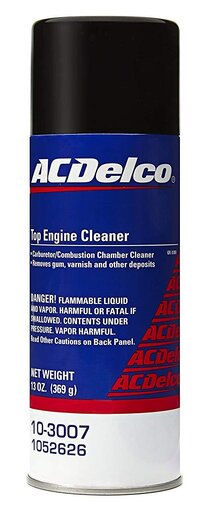
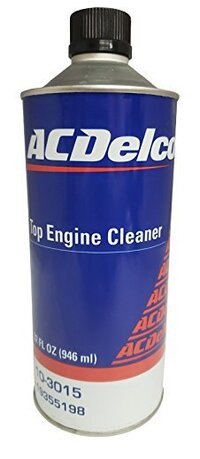
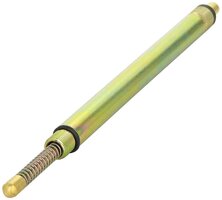
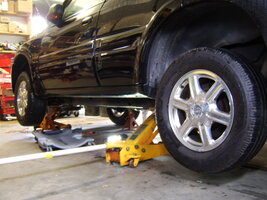
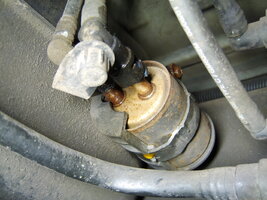
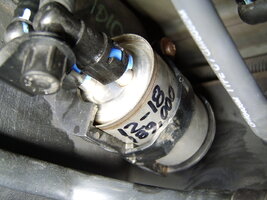
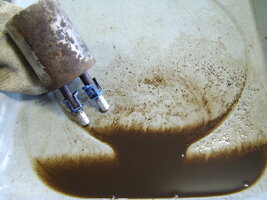
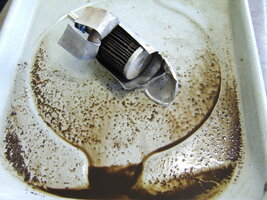
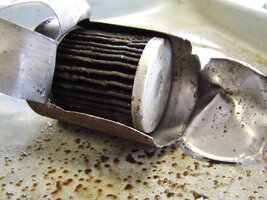
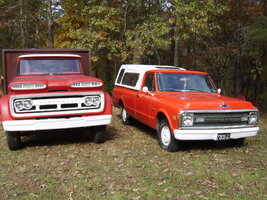
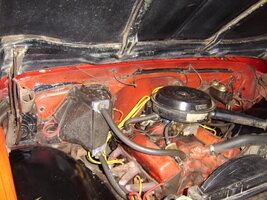

 ...LOL (Caught From AMBUSH...) Now THAT is NOT Your Grandpa's Oldsmobile!
...LOL (Caught From AMBUSH...) Now THAT is NOT Your Grandpa's Oldsmobile!
